
Reviewed by
Beck Jinnette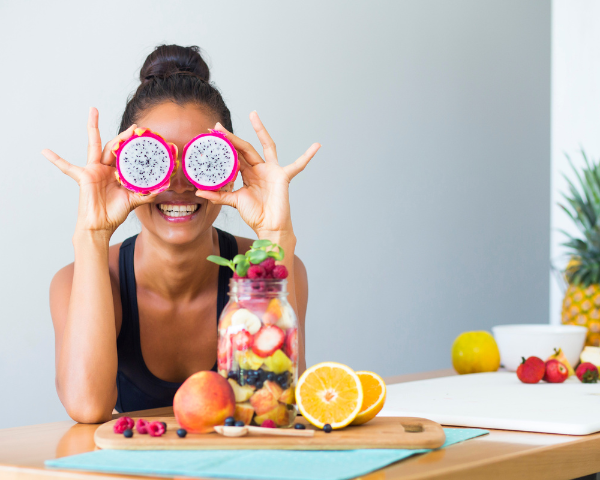
Disclaimer: We at SmartBuyGlasses are not medical doctors. This article contains general advice. Always consult an eye doctor for personalized recommendations for your specific nutritional needs.
The eyes are not typically as closely associated with nutrition as other body parts, but should not be overlooked when considering what constitutes a good diet. We’re all well aware of the importance of diet as far as staying in shape is concerned, and you’ve probably heard about the properties of certain “brain foods.”
But how much do you know about the nutritional needs of your eyes?
Like other organs, the eyes can succumb to various diseases and conditions as we age. Unlike other tissues in the body, many of the cells in our eyes don’t grow back or repair themselves when they’re damaged.
This means you need to take proper care of your eyes while you’re young for the best chance of keeping them in good condition when you reach old age. Managing your nutrient intake effectively goes a long way to maintaining good eye health.
There is a range of vitamins and minerals that can help prevent the onset of certain diseases and allow your eyes to function as they are intended to. Read on to find out which ones you should be sure to include in your diet to keep your eyes strong and healthy.
What are the best vitamins for eye health?
The food we eat generally provides us with high proportions of proteins, fats, and carbohydrates, which our bodies need in large amounts. These are known as macronutrients. Micronutrients, on the other hand, are the dietary components that are needed in smaller quantities.
There are 27 different types of micronutrients, and all are extremely important in the proper functioning of the human body. Studies by the National Eye Institute have found that certain vitamins and minerals can help prevent certain conditions from occurring, or worsening in cases where they already exist.
Here we will provide an overview of which ones are the most beneficial to eye health and which foods they can be found in.
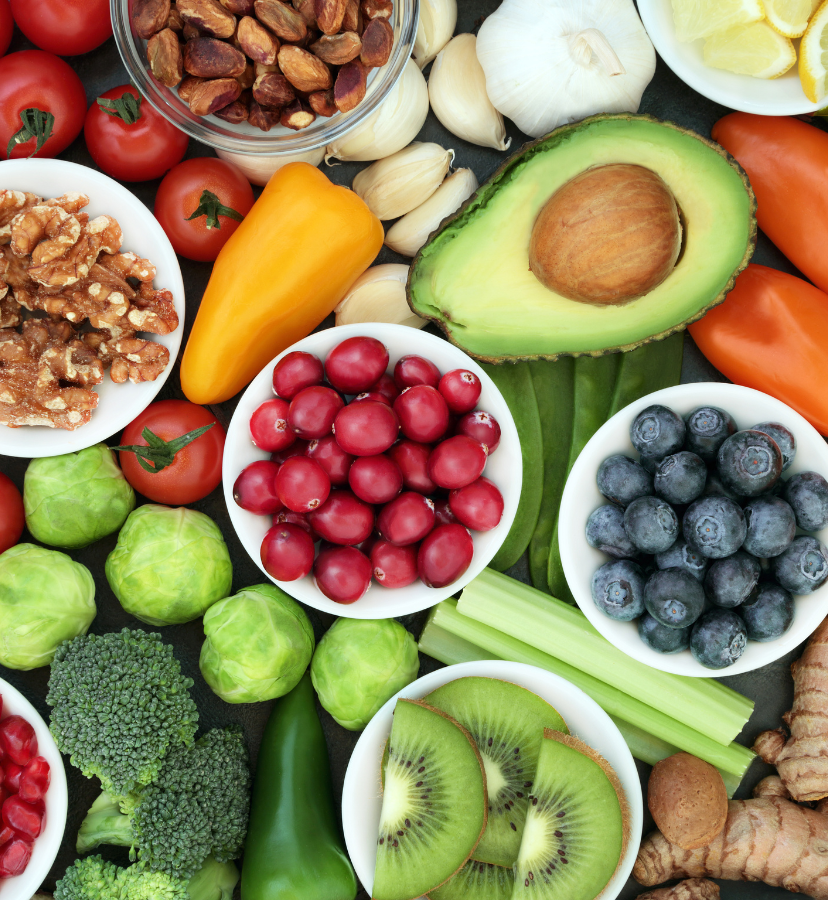
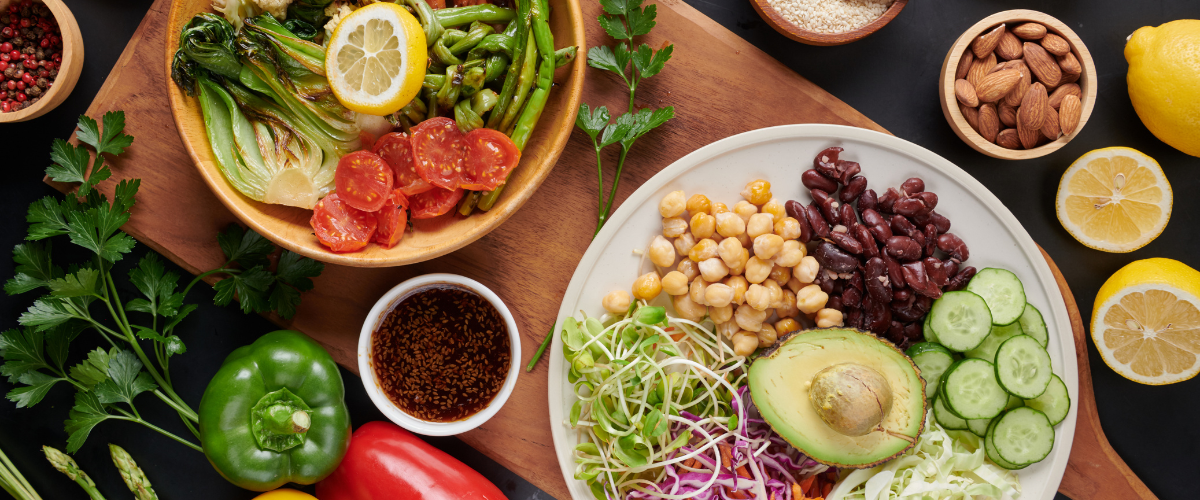
Vitamin A (Beta carotene)
Vitamin A is one of the most essential vitamins for overall eye health as it aids with a number of different parts and functions. The eye needs vitamin A to see in low-light conditions, and a dietary deficiency of it can lead to night blindness, according to the American Academy of Ophthalmology.
The cornea, the eye’s outer protective layer, also requires vitamin A. A lack of vitamin A can inhibit the eyes from producing the normal amount of moisture to keep them lubricated. Vitamin A is found primarily in beta carotene, a type of plant pigment present in colorful fruits and vegetables.
The following foods are good sources of beta-carotene and vitamin A:
- Orange and yellow vegetables like sweet potatoes, carrots, and pumpkins
- Red pepper
- Dark leafy greens like kale, spinach, and broccoli
The daily recommended dietary intake (RDA)of vitamin A is no more than 1.5mg. Too much vitamin A over an extended period could have adverse effects on bone health.
B vitamins
There are eight types of B vitamins, and research suggests that several of them promote eye health. Vitamin B1, also known as thiamine, has been identified as having the potential to reduce the risk of getting cataracts, although the current research is not definitive. Vitamin B1 also reduces inflammation.
There is also research that suggests Vitamins B6 and B12 may help prevent the development of age-related macular degeneration (AMD), a disease that causes vision loss and can lead to blindness. In addition, a deficiency in B vitamins poses a risk of problems with the optic nerve at the back of the eye.
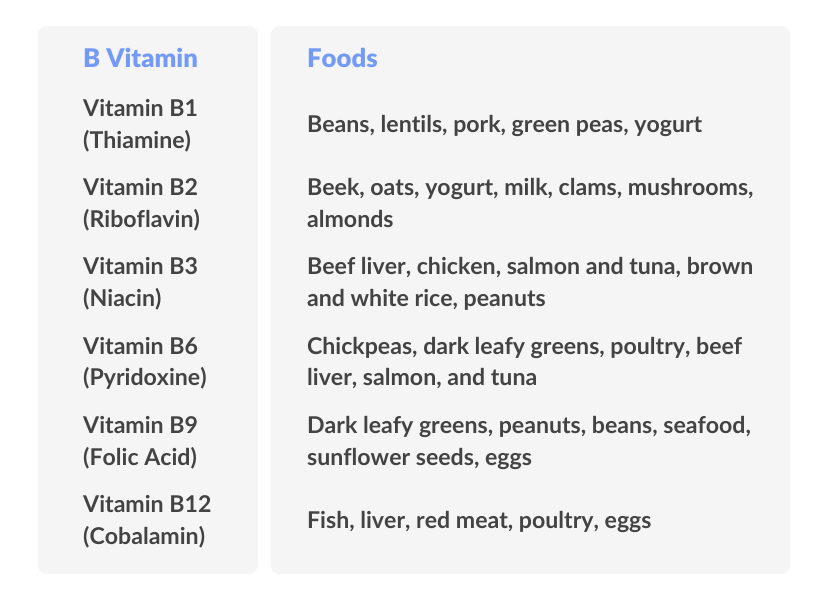
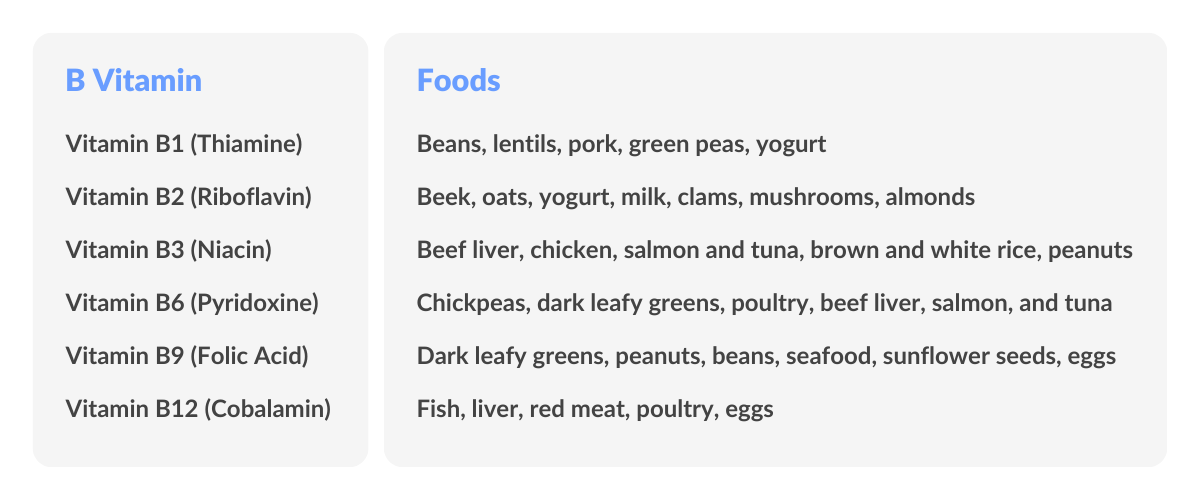
Vitamin B2 (riboflavin) is an antioxidant and can reduce oxidative stress in your eyes and other parts of your body. Scientists have noticed links between riboflavin deficiency and the occurrence of cataracts, the leading cause of blindness, indicating that riboflavin may help prevent this disease. 1.1-1.3mg of riboflavin per day is the recommended dietary dose.
Recent studies have found that vitamin B3, also called niacin, could play a role in preventing glaucoma. In the subjects observed during the research, there was a correlation between low niacin intake and the occurrence of glaucoma, but more research is needed before conclusions can be drawn.
Vitamin C
Vitamin C is a powerful antioxidant and is also required to make collagen, the protein that gives the eye its structure. The results of several studies indicate that vitamin C may help lower the risk of developing cataracts.
Vitamin C is found in plenty of everyday foods, so it’s one of the easier ones to incorporate into your diet:
- Citrus and tropical fruits like oranges, lemons, and pineapple
- Leafy green vegetables like spinach and kale
- Bell peppers and broccoli
DID YOU KNOW
Vitamin C boosts your immune system, helping your body to fight off infections and heal wounds quickly.
Vitamin E
Like vitamin C, vitamin E also has antioxidizing properties, which are required to protect your body’s cells from harmful, unstable molecules called free radicals. Vitamin E may slow the progression of age-related macular degeneration and reduce the risk of it reaching the advanced stages.
Vitamin E can be found in the following foods:
- Nuts, seeds, and cooking oils
- Salmon
- Avocado and leafy green vegetables
Zinc
Zinc plays a part in the formation of visual pigments in the retina. As such, a lack of zinc in the diet may contribute to the occurrence of night blindness. One study showed that zinc had positive results in slowing the progress of age-related macular degeneration in affected patients, although more research is necessary to verify this.
Zinc can be found in:
- Oysters and shellfish
- Meat
- Pine nuts and cashews
Omega 3 fatty acids
- Oily fish such as tuna and sardines
- Nuts and seeds
- Plant oils like olive oil and canola oil
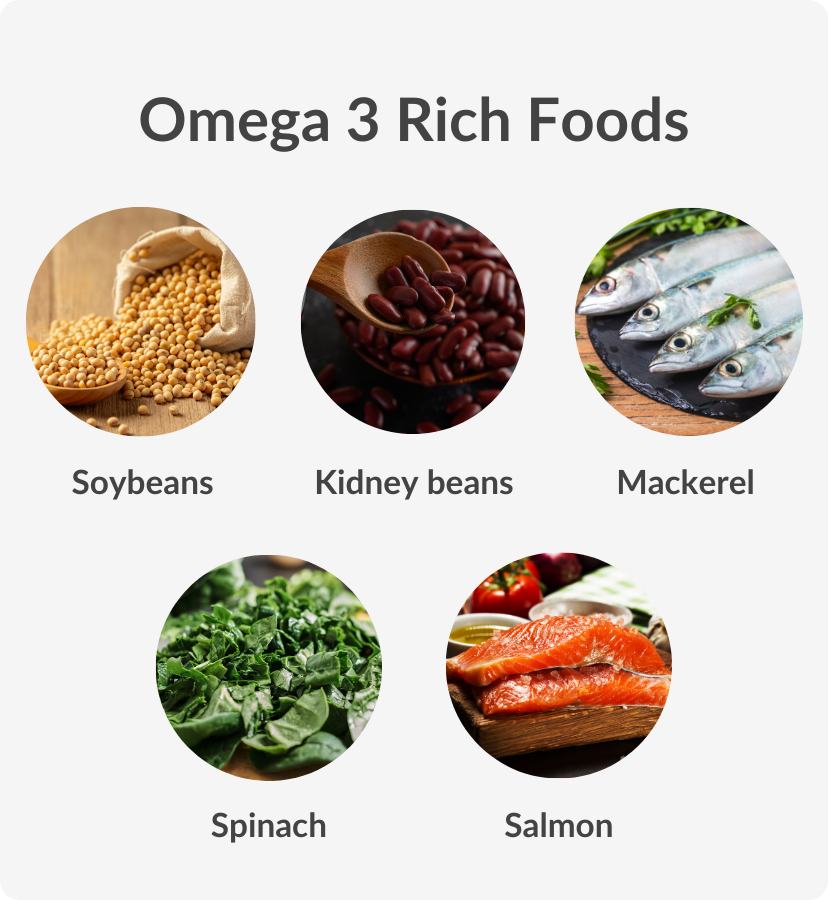
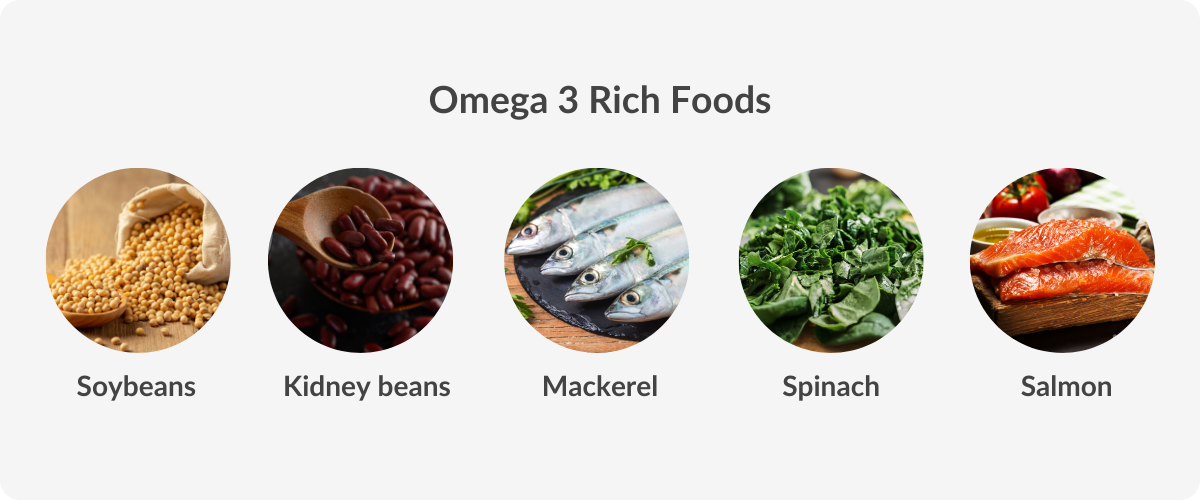
Lutein and zeaxanthin
Lutein and zeaxanthin are carotenoids, the same category that beta carotene falls into. They are present in the macula and the retina of the eye. As they are antioxidants, they may help to reduce oxidative damage to and pressure in the eye.
Lutein and zeaxanthin have been part of scientific studies, with results suggesting that they may help decrease the risk of developing both AMD and glaucoma. Lutein has also shown signs of helping improve vision in people with cataracts. Food sources of Lutein and zeaxanthin include:
- Green leafy vegetables like kale, lettuce, and spinach
- Egg yolks
- Asparagus and broccoli
Can I get enough of these nutrients from food or do I need supplements?
In terms of both general health and eye health, it is always desirable for your nutritional needs to be met by whole foods alone. A balanced diet rich in all of these micronutrients, as well as the quantities and proportions of macronutrients necessary for the healthy functioning of the rest of the body, is the best way to go about it.
This is achievable, although it can take a lot of careful planning to cover all the bases. As outlined above, there are plenty of dietary sources of these vitamins and minerals, but if you are struggling to fit everything in, nutritional supplements are an option.
Before deciding to take any kind of supplement, speak with your doctor and follow their advice on the matter. If they tell you that it is safe for you to do so, there are a range of multivitamin options available that contain the vitamins and minerals listed here. There are also vision supplements designed specifically to promote eye health.
If you do go down the supplement route, always be conscious of expiration dates, and do your research on various manufacturers before settling on one. Organic supplements are preferable to non-organic ones. Once you’ve found one that seems suitable, double-check with your doctor and get their approval on it before you take it.
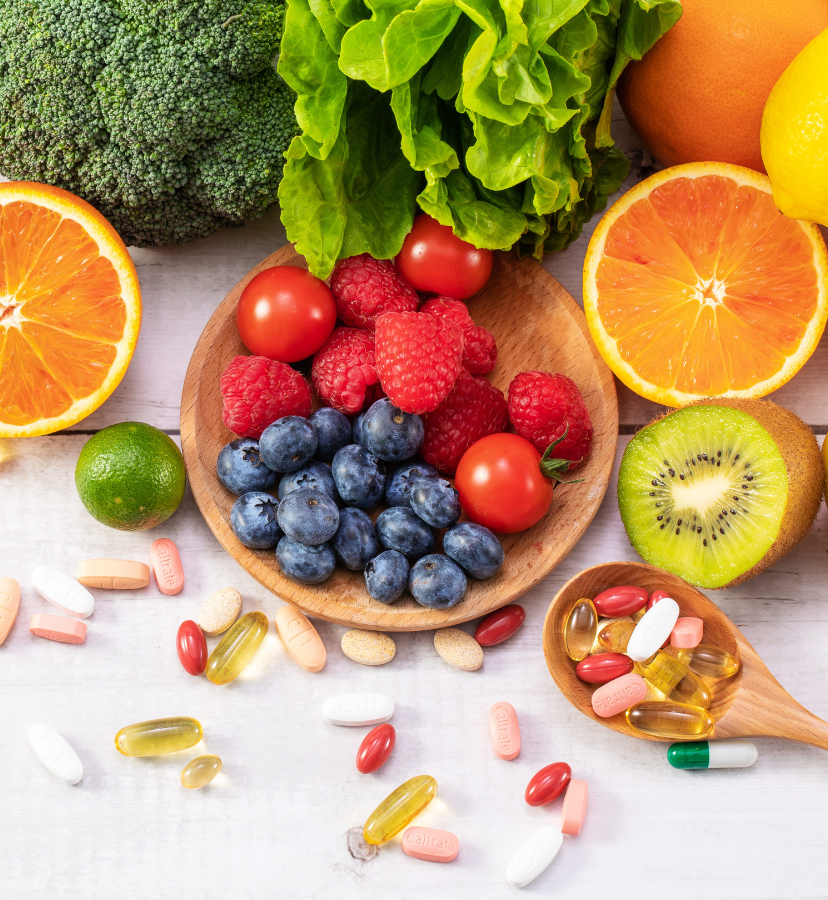
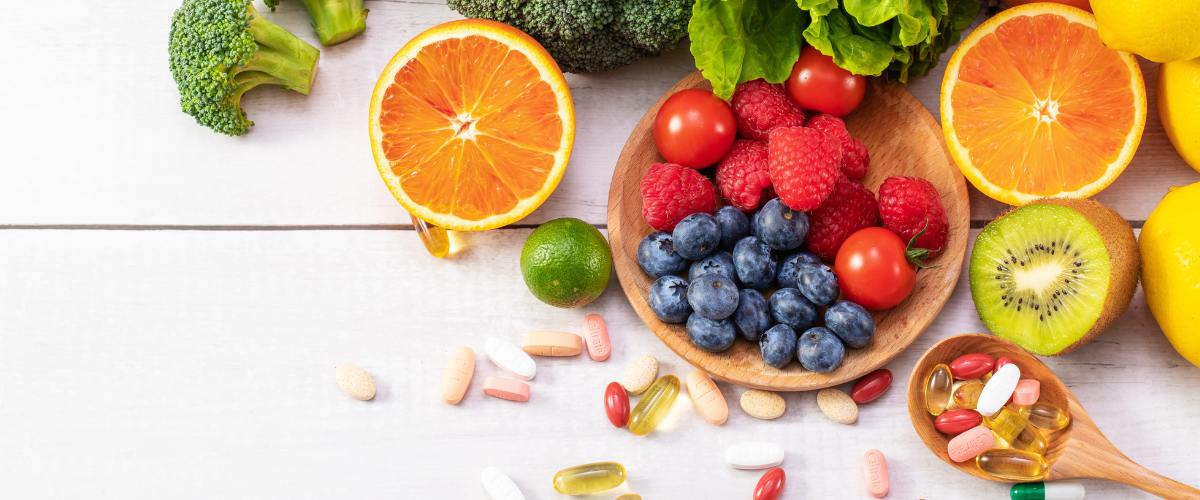
Good habits for eye health
Keep your eyes healthy
Reference list
Aimin Wang, Jing Han, Yunxia Jiang, Dongfeng Zhang (2014), Association of vitamin A and β-carotene with risk for age-related cataract: a meta-analysis, National Library of Medicine. https://pubmed.ncbi.nlm.nih.gov/25194611/
Age-Related Eye Disease Study Research Group (2001), A randomized, placebo-controlled, clinical trial of high-dose supplementation with vitamins C and E, beta carotene, and zinc for age-related macular degeneration and vision loss: AREDS report no. 8, National Library of Medicine. https://pubmed.ncbi.nlm.nih.gov/11594942/
S E Hankinson, M J Stampfer, J M Seddon, G A Colditz, B Rosner, F E Speizer, W C Willett (1992), Nutrient intake and cataract extraction in women: a prospective study, National Library of Medicine. https://pubmed.ncbi.nlm.nih.gov/1392884/
William G Christen, Robert J Glynn, Emily Y Chew, Christine M Albert, Joann E Manson (2009), Folic acid, pyridoxine, and cyanocobalamin combination treatment and age-related macular degeneration in women: the Women’s Antioxidant and Folic Acid Cardiovascular Study, National Library of Medicine.
https://pubmed.ncbi.nlm.nih.gov/19237716/
Rong Liu, Tian Wang, Bao Zhang, Li Qin, Changrui Wu, Qingshan Li, Le Ma (2014), Lutein and zeaxanthin supplementation and association with visual function in age-related macular degeneration, National Library of Medicine.
https://pubmed.ncbi.nlm.nih.gov/25515572/
Mark Y.Z Wong, Ryan E. K. Man, Eva K. Fenwick, Ling-Jun Li, Rob M. van Dam, Preeti Gupta, Mary F. Chong, Ecosse L. Lamoureux (2018), Dietary intake and diabetic retinopathy: A systematic review, National Library of Medicine.
https://www.ncbi.nlm.nih.gov/pmc/articles/PMC5764236/
N W Solomons, R M Russell (1980), The interaction of vitamin A and zinc: implications for human nutrition, National Library of Medicine.
https://pubmed.ncbi.nlm.nih.gov/6774607/








































